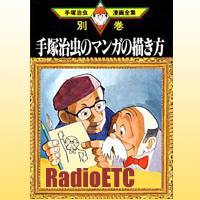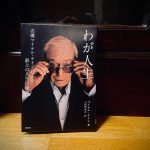英訳できなかった日本語「しーん」
100120.mp3 (7分16秒)
 漫画に「しーん」という言葉を最初に使ったのは、手塚治虫さんだそうです。ロバート先生(ETCマンツーマン英会話)が日本漫画の翻訳をしていてこの言葉に出会ったとき、ロバート先生はどうしたのでしょうが?
漫画に「しーん」という言葉を最初に使ったのは、手塚治虫さんだそうです。ロバート先生(ETCマンツーマン英会話)が日本漫画の翻訳をしていてこの言葉に出会ったとき、ロバート先生はどうしたのでしょうが?
■出演
・ロバート先生(ETCマンツーマン英会話)
■聞き手
・青樹洋文
◆番組の感想はメールフォームから。
But there was one example, OK, from all of those words, that was a difficult example, which is, there was one scene, and the characters who were talking, and it was just a normal, I think it was in an apartment somewhere in Tokyo, maybe not so different from my apartment. Two characters were talking, a boy and girl, and they were having, not an argument, but like a lovers’ disagreement, a quarrel, we say, about something. And they were talking, not arguing, but just talking. And maybe they had, they decided to, not separate, but their relationship wasn’t going so well. So there was some conflict, OK? And then one of the characters leaves the room, and then one character is by himself. And we have the sound. There was the introduced sound, the sound word that was introduced. So he is alone in the room. And there is しーん sound in Japanese.
I had heard that sound in conversation before, maybe in Japanese. But, I have never been asked to translate it. This was my job. So I had to think about this. This was maybe primary example, that gave me, an insight into the differences between how we consider the sound words in English and then the separation of sound words into 擬音語 and 擬態語 in Japanese. So there is a sound, here, in this scene. But the question is: WHERE is that sound? And that is the point that I, you know, want to talk about, WHERE IS THAT SOUND. So the sound is, it’s everywhere in that scene, and its nowhere in that scene. It’s both outside of his body, in the room, and it’s inside him. So it’s physically, it’s the sound of silence. It sounds like Simon and Garfunkel song! The sound of silence. But psychologically or emotionally, it represents solitude, loneliness, isolation, maybe. Not so strongly, but there is a hint of those things in the sound.
I don’t know of a way or a word or…I don’t know that word in English. And I know a lot of words in English. But I don’t know. I am not saying that word doesn’t exist. It might exist. But as a sound word, right, so you express “the sound of no sound”, which is a lonely feeling sound, with a word that is a sound word. Is that OK? It’s kind of complicated. So you make clear what is not clear. You know it like umm, it’s difficult to say…It’s like taking — it’s not good example — but it’s like taking a glass of water, you don’t see the water, really. But if you put in some dye or some color, then you can maybe see. Something like that! You are making it visible, or perceptible, or something.
So anyway that was a big challenge for me. And then I realized that I should probably NOT do this job as a professional. I could DO it. They gave me the work, and I could finish my work, I could be…I could do the job, it was so difficult for me. I enjoy it. It’s extremely enjoyable. But not as something…I don’t want to make those decisions! We have to keep these sound words, let’s cut this sound word. I think if we, if you are making those kind of decision especially with manga, again, I like manga, but I just have very normal level of knowledge and a very normal level of manga admiration. I am just very general reader. But I think if you are translating those words in English, or if you even making editorial decisions, or translation decisions — let’s keep this, let’s cut this, let’s change this — I think you are losing a lot of original beauty of manga, actually. So, I would actually recommend to a Western fan of manga, they have to learn Japanese. Otherwise they are not really reading it, or they are not really understanding it, if it is translated. For other kinds of literature I think, maybe quite different. Anyway that genre, manga, has strong representation of those sound words.
Q: How did you translate しーん?
I didn’t! That’s the word, what can I say, that “broke” me. I was defeated by that word actually.
Q: In the American issue, there is no sound?
There is no sound. We didn’t do anything!
◆使用楽曲 (BGM)
“Soft” of TON from jamendo


















